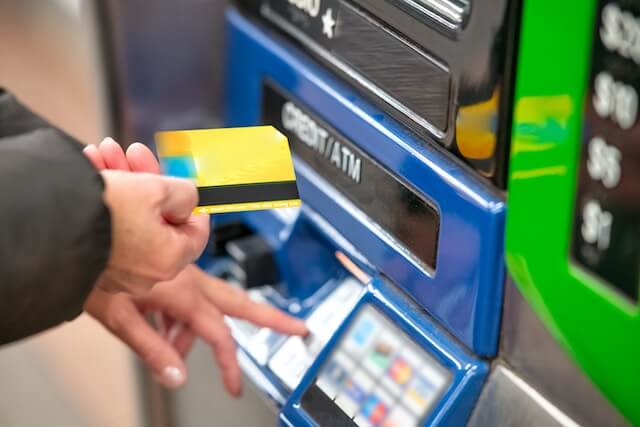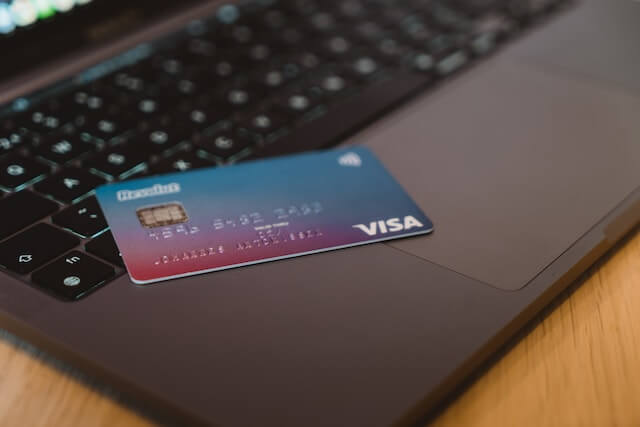Online shopping: how to protect yourself from scams and frauds: Online shopping is becoming increasingly popular, making it easier for us to get the products we want with minimal effort. However, with this convenience comes the potential danger of scams and frauds. In this blog post, we will look at some of the best ways to protect yourself when shopping online, so that you can enjoy the convenience without worrying about being scammed.
Secure Passwords
One of the first things you can do to protect yourself when shopping online is to create a strong and secure password. Make sure your password is at least eight characters long and includes a mix of upper and lower case letters, numbers, and symbols.
Avoid using obvious passwords like “password123” or “12345678,” as these are easily guessable and can leave you vulnerable to hackers. Instead, come up with a unique and complex password that you haven’t used elsewhere.
It’s also important to change your passwords regularly and not use the same password for multiple online accounts. This will prevent hackers from gaining access to all of your accounts if they manage to crack one password.
Consider using a password manager to help you create and manage strong passwords. This will also help you keep track of multiple passwords without having to remember them all yourself.
Beware of Phishing Emails and Websites
One of the most common online scams is phishing, where scammers try to steal your personal information by posing as legitimate businesses or organizations. They may send you emails with links to fake websites or use social engineering tactics to trick you into giving them your login credentials, credit card numbers, or other sensitive information.
To protect yourself from phishing scams, always double-check the email sender’s address and website URL to make sure they are genuine. Be wary of unsolicited emails that ask you to click on links or download attachments, especially if they claim to be urgent or threatening. Never give out your personal information to anyone you don’t trust or don’t know, and never enter your login credentials on websites that don’t use HTTPS encryption.
If you receive a suspicious email or come across a suspicious website, report it to the relevant authorities, such as your bank or the Anti-Phishing Working Group. Don’t engage with the scammers or click on any links, as this could compromise your security and put you at risk of identity theft or financial fraud.
In summary, always be cautious when receiving emails or visiting websites, and don’t let scammers fool you into giving away your personal information. Stay vigilant and follow the other tips in this blog post to ensure a safe and secure online shopping experience.
Use Secure Wi-Fi and Avoid Public Networks
When it comes to online shopping, it’s crucial to use a secure Wi-Fi connection. Avoid using public Wi-Fi networks, as they can be a breeding ground for cyber criminals to steal your personal information. Hackers can easily intercept your data, such as your login credentials and credit card details, when you use a public Wi-Fi connection.
To protect yourself, make sure you use a secure Wi-Fi connection that’s password-protected and encrypted. If you’re using your own home Wi-Fi, ensure that it’s secure by using a strong password and changing it regularly. Also, consider using a virtual private network (VPN) when shopping online. A VPN encrypts your internet connection, making it difficult for hackers to steal your information.
If you must use public Wi-Fi, avoid accessing sensitive information such as your banking information or login credentials. Instead, use your mobile data or a VPN to shop online. You can also consider using a personal hotspot to create a secure Wi-Fi connection.
Remember, when it comes to online shopping, your personal information is at risk. By taking simple steps to protect yourself, you can ensure that you have a safe and enjoyable shopping experience.
Shop from Secure Websites
When it comes to online shopping, one of the most important things you can do to protect yourself is to shop from secure websites. These are websites that have taken extra precautions to ensure that your personal and financial information is kept safe.
One way to tell if a website is secure is to look for the padlock icon in the address bar of your browser. This indicates that the website is using encryption to protect your information. You can also look for the letters “https” in the website’s URL, which stands for “hypertext transfer protocol secure”.
Another thing to keep in mind when shopping online is to avoid clicking on links from unknown sources. This includes emails that may be disguised as legitimate offers from retailers, but are actually phishing scams designed to steal your information. Stick to trusted websites and always type in the URL directly.
If you do come across a website that you are not familiar with, do some research before making a purchase. Look for reviews from other customers, and check the website’s rating with organizations such as the Better Business Bureau.
Overall, shopping from secure websites is essential for protecting yourself from online scams and frauds. Take the time to ensure that you are shopping from trusted sources, and always be vigilant when it comes to protecting your personal and financial information.
Keep Your Software Updated
One of the most crucial things you can do to protect yourself while shopping online is to keep your software updated. This means regularly updating your operating system, web browser, antivirus software, and any other software or applications that you use to shop online. These updates often contain security patches that can fix vulnerabilities in the software and protect you from cyberattacks.
Make sure that your software is set to automatically download and install updates whenever they become available. This way, you don’t have to worry about manually checking for updates and installing them yourself. Many software updates also come with new features and enhancements that can improve your online shopping experience, so it’s always a good idea to keep everything up-to-date.
Additionally, you should always use a legitimate antivirus program and ensure that it is updated regularly. Antivirus software is specifically designed to detect and remove viruses, malware, and other online threats. Keep in mind that there are many fake antivirus programs out there that are designed to scam unsuspecting users, so it’s essential to do your research and choose a reliable antivirus program from a reputable vendor.
In summary, keeping your software updated is one of the easiest and most effective ways to protect yourself from scams and frauds when shopping online. Set your software to automatically update and be sure to use legitimate antivirus software to stay safe online.
Review Your Bank and Credit Card Statements Regularly
While it’s always best to prevent fraud from happening, sometimes even the most diligent efforts can’t completely protect you. This is why it’s essential to review your bank and credit card statements regularly, especially after making online purchases.
Take the time to look over each transaction, no matter how small it is. This will help you spot any unauthorized charges or suspicious activity that may have gone unnoticed otherwise. If you do find any fraudulent activity, contact your bank or credit card company immediately to report it.
It’s also a good idea to set up alerts on your accounts, so you’ll receive notifications if there’s any unusual activity. Many banks and credit card companies offer this service for free, so be sure to take advantage of it.
Lastly, be aware of the timeline for reporting any fraudulent activity. In most cases, you only have a certain amount of time to report any unauthorized charges, and failure to do so may result in you being responsible for those charges. So make sure to review your statements regularly and report any suspicious activity as soon as possible.
Consider Using Virtual Cards or Digital Wallets
Virtual cards and digital wallets are becoming increasingly popular as a means of protecting your financial information when making online purchases. A virtual card is a temporary credit card number that is generated for a specific purchase, and it expires shortly after the transaction is complete. Digital wallets store your payment information securely and allow you to make purchases without having to enter your card information each time.
One of the main advantages of using virtual cards and digital wallets is that they offer an additional layer of protection against fraud. Since the card numbers used for online purchases are temporary and tied to specific transactions, it can be more difficult for hackers to gain access to your actual credit card information. Digital wallets also use advanced encryption methods to protect your financial information, making it more difficult for thieves to steal your data.
Another advantage of using virtual cards and digital wallets is that they can simplify the online shopping process. Since your payment information is already stored securely, you can complete purchases more quickly and easily without having to enter your information repeatedly. This can save you time and reduce the risk of typos or mistakes when entering your information.
If you are considering using virtual cards or digital wallets, be sure to research different providers and compare their features and fees. Some options may offer more comprehensive fraud protection or lower transaction fees than others. Additionally, be sure to keep your virtual card or digital wallet information secure by not sharing it with others and using strong passwords to protect your accounts. By taking these steps, you can enjoy a safer and more convenient online shopping experience.
Online shopping: how to protect yourself from scams and frauds
- 10 Tips for Buying a House on a Tight Budget
- The Best Credit Cards for Cashback Rewards in 2023
- Understanding Credit Scores: Your Guide to Financial Health
Read Product Reviews and Check Seller Ratings
One of the best ways to protect yourself from scams and frauds while shopping online is to read product reviews and check the seller ratings. This helps you ensure that you are dealing with a reputable seller and getting a good deal on a genuine product.
Reading product reviews is crucial when you are shopping for items online. These reviews can provide valuable information about the product you are interested in, including its quality, performance, and any issues or problems that customers have encountered. Make sure to read both positive and negative reviews to get a balanced picture of the product.
Checking the seller’s ratings is also important when you are buying online.
Most marketplaces, such as Amazon and eBay, have a seller rating system that lets you see the feedback from previous buyers. Make sure to choose sellers with a high rating and a good reputation to ensure that you are dealing with a trustworthy and reliable seller.
If you are buying from a lesser-known online store, check their ratings and reviews on independent review sites such as Trustpilot or Sitejabber. This can help you avoid scams and frauds and ensure that you are buying from a legitimate and reputable seller.
In summary, reading product reviews and checking seller ratings are essential steps in protecting yourself when shopping online. Take the time to research the products and sellers before making a purchase, and you will have a safer and more satisfying online shopping experience.









